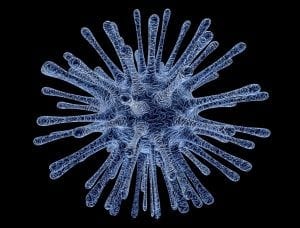14 touchdowns. 11.6 yards per carry (on average). 1st Team All-Conference. These accolades show how hard Luke Winterbottom, an all-league running back for Plymouth Whitemarsh High School, worked during his junior year season. But despite these numbers, Winterbottom was facing an uncommon—and somewhat frightening—foe…even if he didn’t know it yet.
According to Jamie Apody of ABC 6, Winterbottom’s season began with a nagging chronic cough. His chest ached. No matter how much he tried to rest, or to treat the discomfort, it wouldn’t go away. Winterbottom and his coaches believed that he might have developed exercise-induced bronchoconstriction, a condition in which your airways constrict (making breathing more difficult) after activity. After all, despite his discomfort, Winterbottom managed to play through the entirety of the season.
Then came the shocking news: near the end of the year, Winterbottom’s doctors told his family that his symptoms were not the cause of exercise-induced bronchoconstriction. He had a tumor growing in his chest. It was Hodgkin lymphoma.
Since his diagnosis, Luke has undergone significant treatment, including five rounds of chemotherapy and a separate treatment with radiation. His journey certainly hasn’t been easy. Chemotherapy was physically tough.
Now, Winterbottom hopes to play football in college. Although his cancer journey has been hard, he hopes that college coaches see that his condition won’t hold him back. That nothing will hold him back from his dreams. We wish him luck as he continues to persevere!
About Hodgkin Lymphoma
Hodgkin lymphoma is a cancer that manifests in the lymphatic system. This system moves lymph throughout the body and helps protect against infection. Because lymphoid tissue is found in various areas of the body, such as the lymph nodes and spleen, Hodgkin lymphoma may form in different places. Since the lymphatic system helps the body to fight infection, having this cancer means that your body doesn’t protect against foreign invaders as well.
Symptoms of Hodgkin lymphoma may, but do not always, include:
- Swollen lymph nodes that most often appear in the neck but may also be found in the abdomen, armpits, groin, and chest
- Extremely itchy skin
- Unintentional weight loss
- Bone pain
- Fever and chills
- Night sweats
- Fatigue and general malaise
- An enlarged spleen and/or liver
- Gastrointestinal or kidney abnormalities






